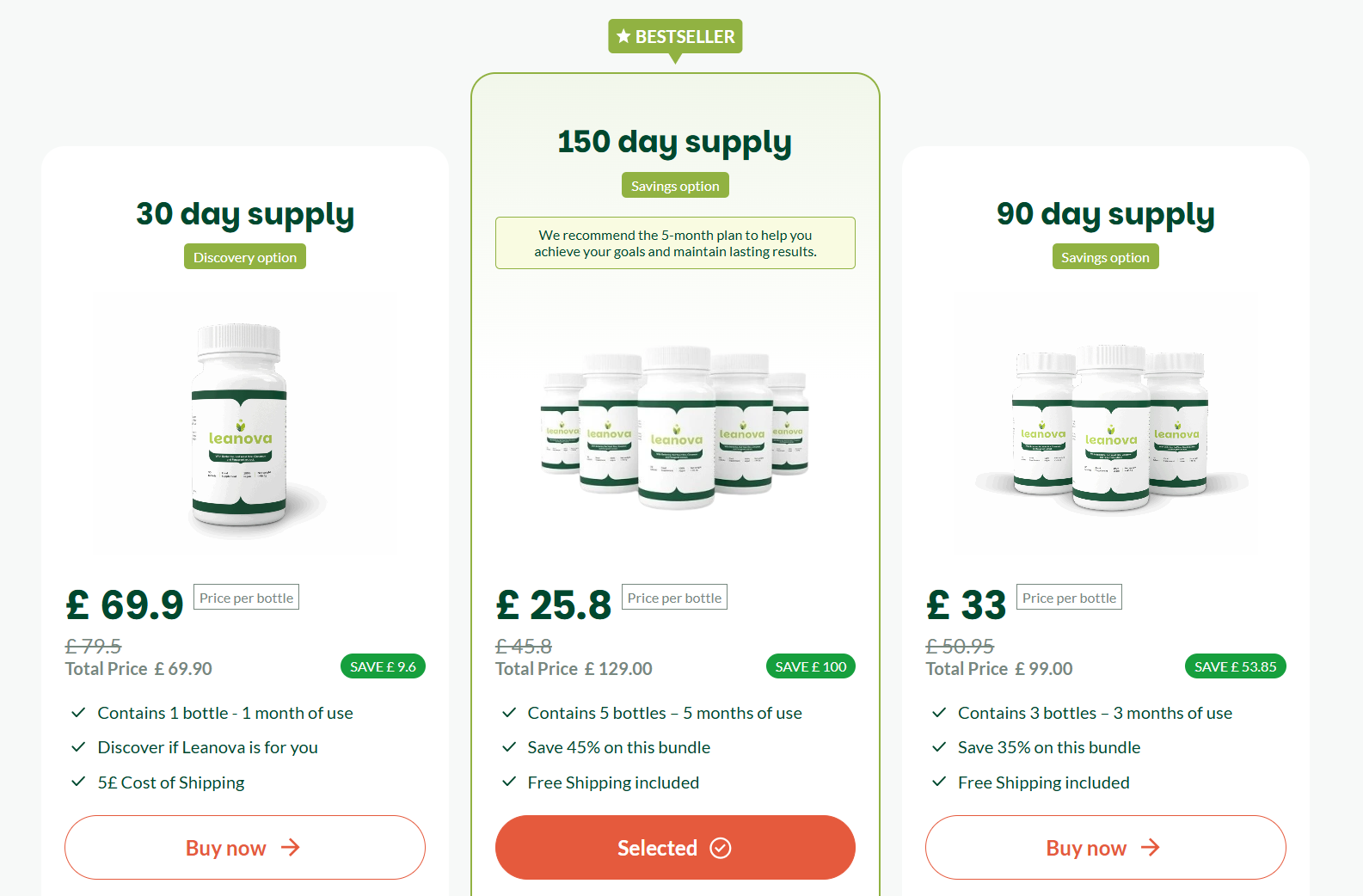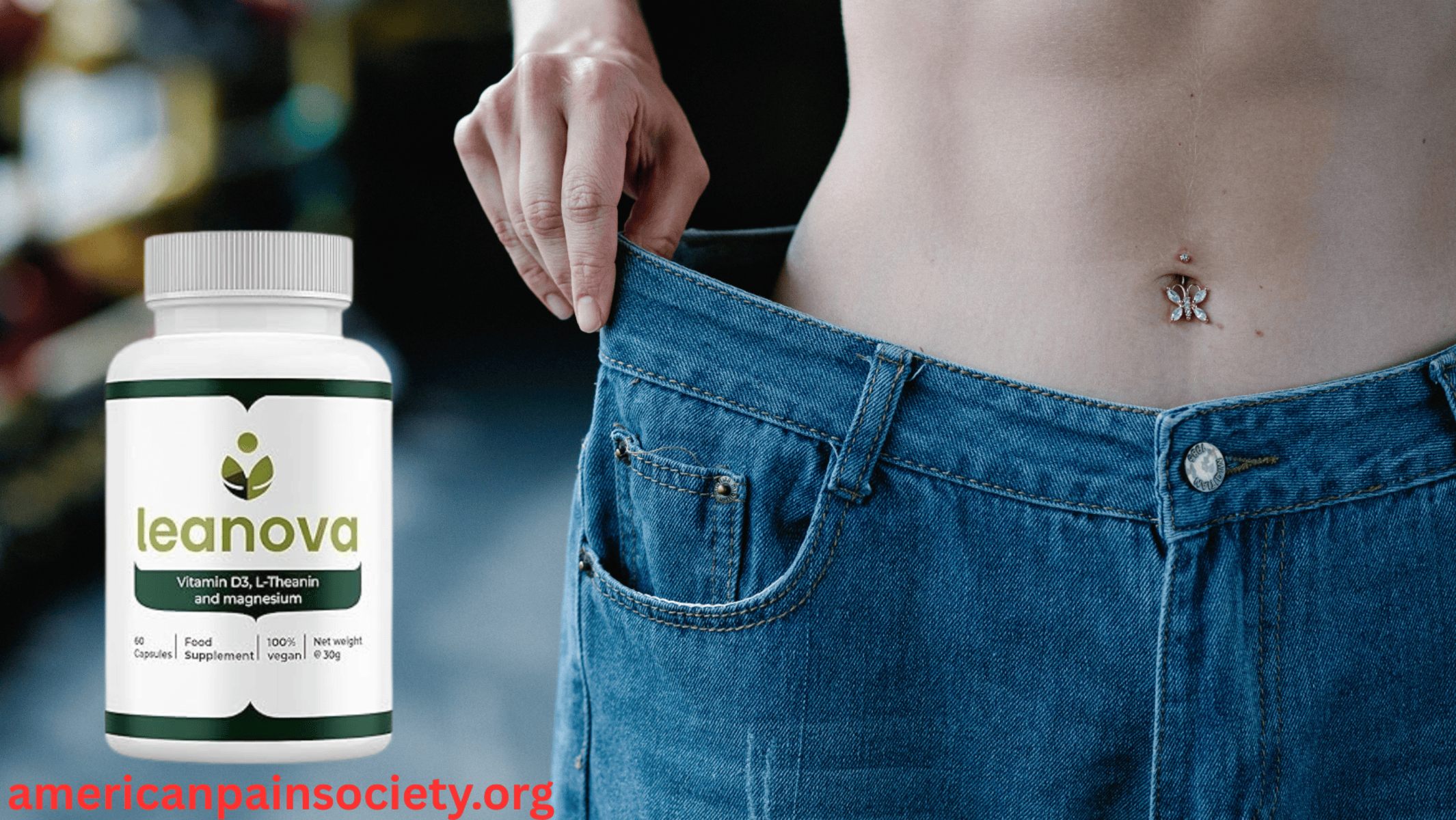Leanova Reviews
Are there any weight loss supplements that actually work? The market is full of products with outlandish claims, but rarely any of them work. The potent weight loss supplements are not available over the counter. To solve this problem, a small company in the Netherlands has designed a plant-based weight loss dietary supplement, Leanova. The Leanova slimming tablets claim to boost metabolism and reduce appetite. The Leanova reviews on the internet are mixed. In this article, we will provide all the necessary information to make an informed decision.
Leanova, United Kingdom – UK, is available over the counter. It does not contain any stimulants or additives. Manufacturers claim it to be risk-free. However, just like every other supplement, you must stay vigilant and get all the information. In addition, you must consult a healthcare provider before you start taking any dietary supplement.
Quick Overview
- Product Name: Leanova
- Brand name/ Manufacturers: O. Labs
- Product weight: 5 grams
- Supplement Type: Pills/Tablet
- Age Group: Adults (21 and above)
- Gender: Unisex
- Count Per Bottle: 30
- Money Back Guarantee: 30 Days
- Contact Information: contact@tryleanova.com
- Dosage: 1 Pill a day after breakfast
What are Leanova Slimming tablets?
Leanova Dragons Den Weight Loss is a dietary supplement designed to help with weight loss. It is a plant-based herbal weight loss formula. All ingredients are of the highest quality. It claims to supercharge the metabolism and burn all extra fat in a few months. Another quality of Leanova United Kingdom is the balanced appetite suppression. It can help reduce snacking between meals.
What makes Leanova unique is its effectiveness. Not many over-the-counter supplements can help with weight loss. Very few products can make you lose weight, and almost all of them are available only after a prescription. This over-the-counter plant-based pill can burn the most stubborn fat.
Who should try Leanova slimming tablets?
- People who are trying to lose weight
- People who want to boost their metabolism
- People who want to get a toned, slim physique
- People who want to reduce the risk of cardiovascular complications
- People who want to improve their overall health
Ingredients and scientific research behind them
-
Glucomannan
- What is it: A soluble dietary fiber extracted from the konjac plant root
- How does it work? When you consume it, it absorbs water in your stomach. Making you feel full. It is not easily digested. It makes you feel full for a longer time.
- Research: A meta-analysis published in 202 shows a positive correlation between weight loss, metabolism, and regular intake of Glucomannan.
-
Chromium Picolinate
- What is it: A mineral that plays a crucial role in fat and carb metabolism.
- How it works: It is believed to enhance insulin activity. It moves the glucose from the bloodstream to fat cells. Then, fat cells use that as a form of energy.
- Research: A randomized trial of Chromium Picolinate in 2014, published in the Molecule Journal, shows positive results with weight loss.
-
Berberine
- What is it: It is a bioactive compound mainly from the plant Barberry.
- How it works: Berberine is known to affect many cellular pathways. It improves metabolism and insulin resistance. Helps burn extra calories.
- Research: A 2020 randomized controlled trial shows promising results with weight loss. Another study published in the Journal of Science shows the positive correlation between berberine and weight loss as well as BMI.

- Fenugreek Seed Extract
- What is it: A soluble fiber from the fenugreek plant
- How it works: When ingested, it helps you feel full. It has moderate appetite-suppressing properties. Helps with a deficit diet.
- Research: A study published in the European Journal of Clinical Pharmacology found that fenugreek seed extract reduced fat consumption.
- Red Yeast Rice
- B Vitamins (B3, B6, B12), Selenium
- Cinnamon Extract, Biotin
- Magnesium and Vitamin D3
5 Benefits of Leanova weight loss pills
- Healthy Weight Loss: The primary purpose of this plant-based dietary supplement is to help with weight loss, and it will help with healthy weight loss. You will not suffer any muscle loss. No weakness during the day. No hunger pangs.
- Boosted Metabolism: The boost in metabolism allows you to get a calorie-deficient plan. By reducing calories, you get closer to weight loss goals.
- Improved Energy Levels: Leanova weight loss pills may increase energy levels. It is due to the boosted metabolism. It burns fat as energy. Allowing our body to expend extra energy.
- Lowered Risk of Cardiovascular Complications: Obesity is the root cause of many health problems; by maintaining a healthy weight and diet, you reduce the risk of heart problems.
- Improved Mobility: Extra weight can dampen mobility and put extra pressure on joints. When you lose weight, this tension will get lower as well.
Trustpilot reviews of Leanova Weight loss pills
So far, there are 40 reviews on Trustpilot with an average rating of Leanova United Kingdom, UK pills standing at 4.2. Which is good. Most of the customers are happy with the results. Yes, a few people did not get any results. And there is no mention of any side effects.

Credibility and safety of Leanova UK Tablet
- It is manufactured in a European-certified lab in the Netherlands.
- O. Labs is a reputable brand with many other plant-based dietary supplements.
- The product is not evaluated by the FDA.
Risk associated with Leanova Weight loss supplement
Leanova Dragons Den Weight Loss is a plant-based dietary supplement. The risk associated with it is very low. However, there are a few things that you must know.
- It may cause bloating in the stomach
- You may feel full and weak
- Increased heart palpitations in rare cases
- Allergic reaction to an ingredient
Comparing Leanova with Ozempic
Ozempic is available with a prescription, and it really works for almost everyone. On the other hand, Leanova capsules are a plant-based weight loss supplement; it may or may not work for everyone. The success rate of Ozempic is far better than Leanova.
Comparing Leanova with the keto Diet
The keto diet is a protein and fat-rich diet, where you avoid carbs. Leanova is a metabolism booster. Both work very well. In fact, you can combine the Keto diet with Dragons Den Leanova UK pills to get better results.
How to boost weight loss results?
Final Verdict
It is not easy to burn fat and lose weight. Most of the time, people end up failing and gaining weight more than before. Leanova slimming tablets will help you boost metabolism and suppress appetite. It will improve energy levels and boost overall health. As it is a plant-based product, the risk of side effects is low. We do recommend trying this product. Dragons Den Leanova is an online exclusive product, available only on its official website. Be careful of the dupes; always buy from the official website.

Frequently Asked Questions
- Does Leanova Slimming tablet actually work?
- Yes, Leanova does work. The general reviews are promising. You can take it to lose weight.
- Is Leanova FDA-approved?
- No, Leanova weight loss pills are not FDA approved. The FDA does not approve or disapprove dietary supplements.
- When will Leanova users start noticing visible results?
- Most customers start seeing results after 3 weeks. Make sure to follow a healthy diet plan coupled with a workout.
- Does Leanova affect the sleep cycle?
- No, Leanova does not affect the sleep cycle. It has no stimulant or additive in it.
- Is it okay to use Leanova in the long term?
- Yes, you can use Leanova for the long term. We recommend consulting a healthcare expert before making any decision.
Disclaimer & Copyright
The content on AmericanPainSociety.org is provided for general informational purposes only and should not replace professional medical advice, diagnosis, or treatment. We make no guarantees of accuracy, completeness, or timeliness. Users rely on the information at their own risk. Always consult qualified professionals for healthcare decisions.
© 2025 American Pain Society. All rights reserved. No part of this website may be reproduced, distributed, or transmitted in any form or by any means without prior written permission.

